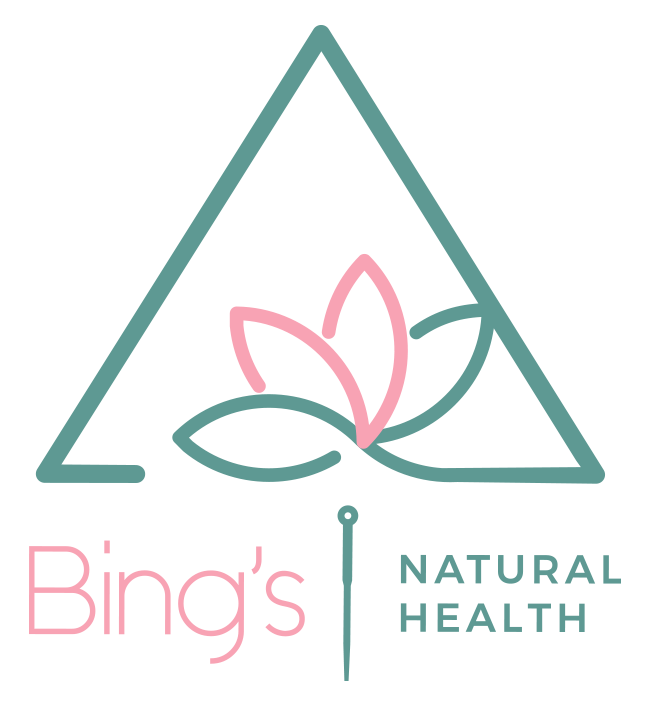
Acupuncture and Chinese herbs for Period Pain
Chinese medicine for period pain
What is Period Pain?
Painful periods or Dysmenorrhea, is a hormonal problem and can be associated with endometriosis or PCOS (PolyCystic Ovarian Syndrome).
This pain can be experienced
a few days before the period
any time during the period
a few days after the period
and may include other pain-like sensations (cramping, dragging, heaviness or aching) in:
whole belly
lower belly (under the belly button)
legs
lower back
There may also be other symptoms like:
mood swings
headaches or migraines
fatigue, dizziness or even fainting
vomiting or nausea
bloating
skin problems like acne
toothache
insomnia and/or night sweats
joint pain
diarrhoea or constipation
Who suffers from Period Pain?
Period pain is a common problem; around one half of people who menstruate suffer from period cramps.
For 5% of these people, cramping is such a severe issue each month that it stops them from functioning normally for a number of days, and they need to take time off work.
What are the causes of Period Pain in Chinese Medicine?
In Traditional Chinese Medicine, the reproductive system involves the spleen, the liver and the kidney energy channels. So the symptoms of period pain will depend on how many of these channels are disrupted and what the disruptions are.
In Traditional Chinese Medicine, pain is caused by interruption to the free-flow of Qi energy. So to reduce pain, we restore the free-flow of Qi energy to the affected channel system.
One of the strengths of acupuncture and chinese medicine is the ability to individualize your treatment plan. As your health improves, we are able to adjust your sessions to accomodate these improvements.
Menstrual health can be complicated at times. There are various changes that happen naturally due to the cyclic nature of your hormones. Different hormones surge and ebb throughout your cycle, which may cause various symptoms to occur. We help you manage these symptoms.
During your session, we will ask questions about your:
menstrual cycle history
menstrual cramping, bloating or other symptoms
food habits
exercise
stress factors
sleep health
digestion
energy levels
in order to work out a personalised treatment plan for you.
How does acupuncture support the body?
Acupuncture has a calming effect on the nervous system:
engages the parasympathetic nervous system to ease your body into a rest-relax-rejuvenation state of being.
signals the body to release endorphins which are the body’s own ‘feel-good’ chemicals
[Ribeiro SC, Kennedy SE, Smith YR, Stohler CS, Zubieta JK. Interface of physical and emotional stress regulation through the endogenous opioid system and μ-opioid receptors. Progress in Neuro-Psychopharmacology and Biological Psychiatry. 2005;1264-1280]
endorphins play an important role in regulation of emotional stress responses
[Harbach H, Moll B, Boedeker RH, et al. Minimal immunoreactive plasma β-endorphin and decrease of cortisol at standard analgesia or different acupuncture techniques. European Journal of Anaesthesiology. 2007; 24:370-6
Agelink MW, Sanner D, Eich H, Pach J, Bertling R, Lemmer W, Klieser E, Lehmann E. Does acupuncture influence the cardiac autonomic nervous system in patients with minor depression or anxiety disorders? Fortschritte der Neurologie-Psychiatrie. 2003;71:141-9 19.
Rickels K, Rynn M. Pharmacotherapy of generalized anxiety disorder. J Clin Psychiatry. 2002;63:Suppl 9-16 20.
Generoso MB, Trevizol AP, Kasper S, Cho HJ, Cordeiro Q, Shiozawa P. Pregabiln for generalized anxiety disorder: an updated systematic review and meta-analysis. 2017;32:49-55
Acupuncture improves Heart Rate Variability (HRV). HRV is simply a measure of the variation in time between each heartbeat. This variation is controlled by the automonic nervous system (ANS).The ANS is subdivided into two large components, the sympathetic (fight-flight-freeze) state and the parasympathetic nervous system (rest-relax-rejuvenation) state. HRV is an interesting and noninvasive way to identify any Autonomic Nervous system (ANS) imbalances. When the body is in ‘a fight-flight-freeze mode’, the variation between heartbeats is low. When the body is in a ‘rest-relax-rejuvenation’ state, the variation between heartbeats is high. So, the healthier your ANS is, the faster you are able to switch gears which is reflected in a high HRV. Your body shows more resilience and flexibility; and may be associated with better cardiovascular fitness. Research has shown a relationship between low HRV and worsening depression or anxiety. It is fascinating to see how HRV improves as you incorporate more mindfulness, meditation, sleep, and physical activity into your life.
[https://www.health.harvard.edu/blog/heart-rate-variability-new-way-track-well-2017112212789, accessed 21/9/21]
Acupuncture improves the body’s ability to cope with stress by improving HRV
[Chung, J. W. Y., Yan, V. C. M., & Zhang, H. (2014). Effect of Acupuncture on Heart Rate Variability: A Systematic Review. Evidence-Based Complementary and Alternative Medicine, 2014(5), 1–19. http://doi.org/10.1111/j.1365-2982.2008.01164.x]
Research
Pain Relief
Acupuncture - women’s health
period pain
irregular periods
cyclic migraines
PMS
pregnancy related aches and pain
pregnancy related nausea and vomiting
Chronic conditions support
Want to find out more?
Use this form to contact us with your health and well-being query.


